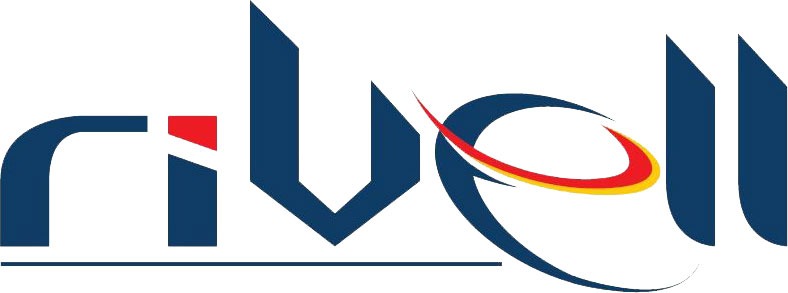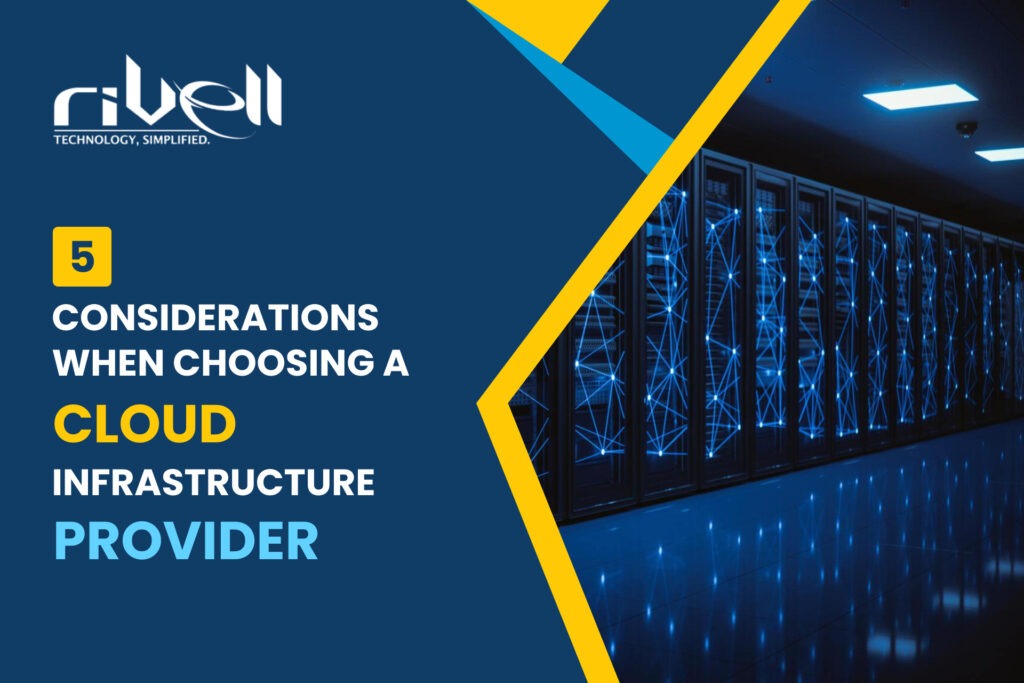Introduction
In today’s digital landscape, businesses are increasingly relying on cloud infrastructure to power their operations, applications, and services. The choice of a cloud infrastructure provider is a pivotal decision that can significantly impact the efficiency, security, scalability, and ultimately the success of your organization. As the demand for cloud services continues to soar, selecting the right cloud infrastructure provider has become more critical than ever before.
The importance of selecting the right cloud infrastructure provider cannot be overstated. A robust and reliable cloud infrastructure forms the foundation of your IT ecosystem, enabling you to leverage cutting-edge technologies, streamline operations, and stay competitive in a rapidly evolving market. However, with a myriad of options available in the market, ranging from global giants to niche players, navigating the landscape can be daunting.
In this article, we’ll delve into the key considerations that organizations must keep in mind when choosing a cloud infrastructure provider.
5 considerations when choosing a cloud infrastructure provider
1. Performance and Reliability
Performance and reliability stand as the cornerstones of service quality. These two factors can make or break the success of your IT operations, directly impacting user experience, productivity, and even revenue generation. Let’s explore why performance and reliability are paramount when selecting a cloud infrastructure provider, delve into the key factors that influence performance, and discuss how to evaluate a provider’s track record in terms of reliability.
Importance of Performance and Reliability
Performance and reliability are critical aspects of any cloud infrastructure provider due to several reasons:
1. User Experience
In today’s digital landscape, users expect seamless and responsive experiences. Slow or unreliable cloud infrastructure can result in frustrated users, leading to decreased engagement and potential loss of customers.
2. Business Continuity
Downtime or performance issues can disrupt business operations, leading to productivity losses and revenue impacts. A reliable cloud infrastructure ensures continuous availability of services, supporting uninterrupted operations.
3. Scalability
Performance and reliability are closely tied to scalability. A robust infrastructure can efficiently handle fluctuations in workload demands, ensuring consistent performance even during peak periods.
2. Security and Compliance
In the modern digital landscape, security and compliance are paramount considerations for businesses entrusting their data and applications to cloud infrastructure providers. As cyber threats continue to evolve, organizations must prioritize robust security measures to safeguard sensitive information and ensure regulatory compliance. In this section, we’ll explore the criticality of security and compliance in cloud infrastructure, delve into the key security features offered by providers, and discuss the importance of compliance certifications and regulatory requirements.
Criticality of Security and Compliance in Cloud Infrastructure
Security breaches and data breaches can have devastating consequences for organizations, ranging from financial losses to reputational damage and legal liabilities. Therefore, ensuring the security and compliance of cloud infrastructure is of utmost importance.
Cloud environments are particularly attractive targets for cyber attackers due to the vast amounts of data stored and processed within them. Additionally, the shared responsibility model in cloud computing necessitates collaboration between the provider and the customer to mitigate security risks effectively.
Overview of Security Features Offered by Providers
Cloud infrastructure providers offer a range of security features and services designed to protect data and resources from unauthorized access, data breaches, and cyber threats. Some common security features include:
1. Encryption
Encryption ensures that data is securely encrypted both in transit and at rest, preventing unauthorized access even if data is intercepted or compromised.
2. Access Controls
Access controls enable organizations to enforce granular access policies, restricting access to resources based on user roles, permissions, and authentication factors.
3. Network Security
Providers implement robust network security measures, such as firewalls, intrusion detection and prevention systems (IDPS), and virtual private networks (VPNs), to protect against network-based attacks and unauthorized access.
4. Identity and Access Management (IAM)
IAM solutions allow organizations to manage user identities, credentials, and access permissions centrally, reducing the risk of unauthorized access and credential misuse.
5. Threat Detection and Monitoring
Providers offer advanced threat detection and monitoring capabilities, including anomaly detection, log analysis, and security incident response, to identify and mitigate security threats in real-time.
Compliance Certifications and Regulatory Requirements
In addition to implementing robust security measures, cloud infrastructure providers must comply with various regulatory requirements and industry standards to ensure data protection and privacy. Compliance certifications validate a provider’s adherence to specific security and privacy standards, providing assurance to customers that their data is handled in accordance with established guidelines. Some common compliance certifications and regulatory requirements to consider include:
1. GDPR (General Data Protection Regulation)
GDPR is a comprehensive data protection regulation applicable to organizations handling personal data of EU residents. Cloud providers must comply with GDPR requirements, including data protection, privacy rights, and breach notification obligations.
2. HIPAA (Health Insurance Portability and Accountability Act)
HIPAA sets standards for the protection of electronic protected health information (ePHI) and requires healthcare organizations and their business associates to implement safeguards to ensure the confidentiality, integrity, and availability of ePHI.
3. PCI DSS (Payment Card Industry Data Security Standard)
PCI DSS is a set of security standards designed to protect payment card data and prevent credit card fraud. Cloud providers must comply with PCI DSS requirements when processing, storing, or transmitting payment card data.
4. SOC 2 (System and Organization Controls 2)
SOC 2 is a framework for evaluating service providers’ controls related to security, availability, processing integrity, confidentiality, and privacy. Cloud providers undergo independent audits to demonstrate compliance with SOC 2 requirements and provide assurance to customers regarding the security and privacy of their data.
3. Scalability and Flexibility
Scalability is a key advantage of cloud computing, allowing businesses to scale resources up or down based on demand. When selecting a cloud infrastructure provider, assess their scalability features and capabilities. Look for options such as auto-scaling, which automatically adjusts resources in response to workload fluctuations.
Moreover, consider the flexibility offered by the provider in terms of deployment models (public, private, hybrid) and the range of services available. A provider that offers a comprehensive suite of services, including compute, storage, networking, and database solutions, can cater to diverse business requirements and future growth.
4. Cost and Pricing Structure
Cost and pricing structure play a pivotal role in shaping the decision-making process for businesses. While the allure of scalability and flexibility draws organizations towards cloud solutions, understanding the nuances of pricing models and uncovering hidden costs are crucial steps in optimizing costs without compromising on performance and reliability.
Understanding the Pricing Models
Cloud infrastructure providers offer diverse pricing models to cater to the varying needs and preferences of customers. Some common pricing models include:
1. Pay-as-you-go
Pay-as-you-go pricing allows customers to pay only for the resources they consume on an hourly or per-minute basis. This model offers flexibility and cost-efficiency, as customers can scale resources up or down based on demand without long-term commitments.
2. Reserved Instances
Reserved Instances enable customers to commit to a specific amount of resources (e.g., compute instances, storage) for a predetermined period, typically one to three years, in exchange for discounted pricing. Reserved Instances are suitable for predictable workloads with steady resource requirements.
3. Spot Instances
Spot Instances offer significant cost savings by allowing customers to bid on unused cloud capacity, potentially accessing resources at significantly lower prices compared to standard on-demand rates. However, spot instances are subject to availability and may be terminated if the spot price exceeds the bid price.
4. Hybrid Pricing
Some providers offer hybrid pricing models that combine elements of pay-as-you-go, reserved instances, and spot instances to optimize costs based on workload characteristics and business requirements.
5. Support and Service Level Agreements (SLAs)
In the dynamic landscape of cloud computing, where businesses rely heavily on cloud infrastructure for their operations, having robust support and Service Level Agreements (SLAs) is paramount. These elements ensure that organizations receive the necessary assistance and guarantees to maintain uptime, resolve issues promptly, and achieve their business objectives effectively.
In this section, we’ll explore the significance of support and SLAs in cloud infrastructure, delve into the components of SLAs, and discuss best practices for leveraging support services to maximize operational efficiency and reliability.
Importance of Support and SLAs
Support and SLAs play a critical role in the overall customer experience and satisfaction with cloud infrastructure providers. Here’s why they are essential:
1. Operational Continuity
Prompt and effective support services ensure operational continuity by addressing technical issues, resolving downtime incidents, and minimizing disruptions to business operations.
2. Risk Mitigation
SLAs provide assurances regarding service availability, performance, and response times, mitigating the risks associated with service outages, performance degradation, and data loss.
3. Resource Optimization
Access to expert support resources enables organizations to optimize resource utilization, troubleshoot performance issues, and implement best practices for cloud deployment and management.
4. Business Confidence
Transparent SLAs and reliable support services instill confidence in the cloud provider’s capabilities, fostering trust and long-term relationships with customers.
Conclusion
when choosing a cloud infrastructure provider, it’s crucial to prioritize performance, reliability, security, compliance, cost-effectiveness, and support. By thoroughly evaluating these considerations, businesses can make informed decisions that align with their objectives and drive success in the digital age.
Rivell offers a transformative solution for businesses seeking to navigate the complexities of cloud infrastructure selection. With Rivell by their side, organizations can confidently embark on their cloud journey, knowing that they have made a well-informed decision backed by data-driven insights and expert guidance.
Contact us today to learn more about how Rivell can revolutionize your cloud infrastructure decision-making process. Call +1 (856) 603 0000 to schedule a consultation with our team of experts.









